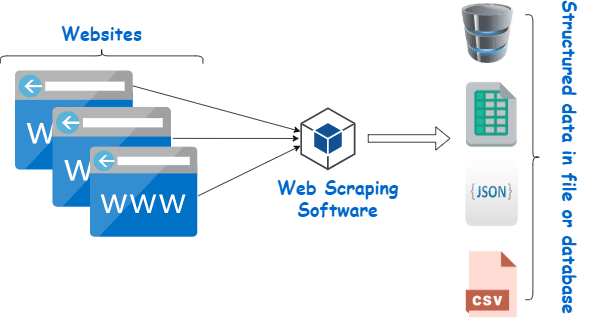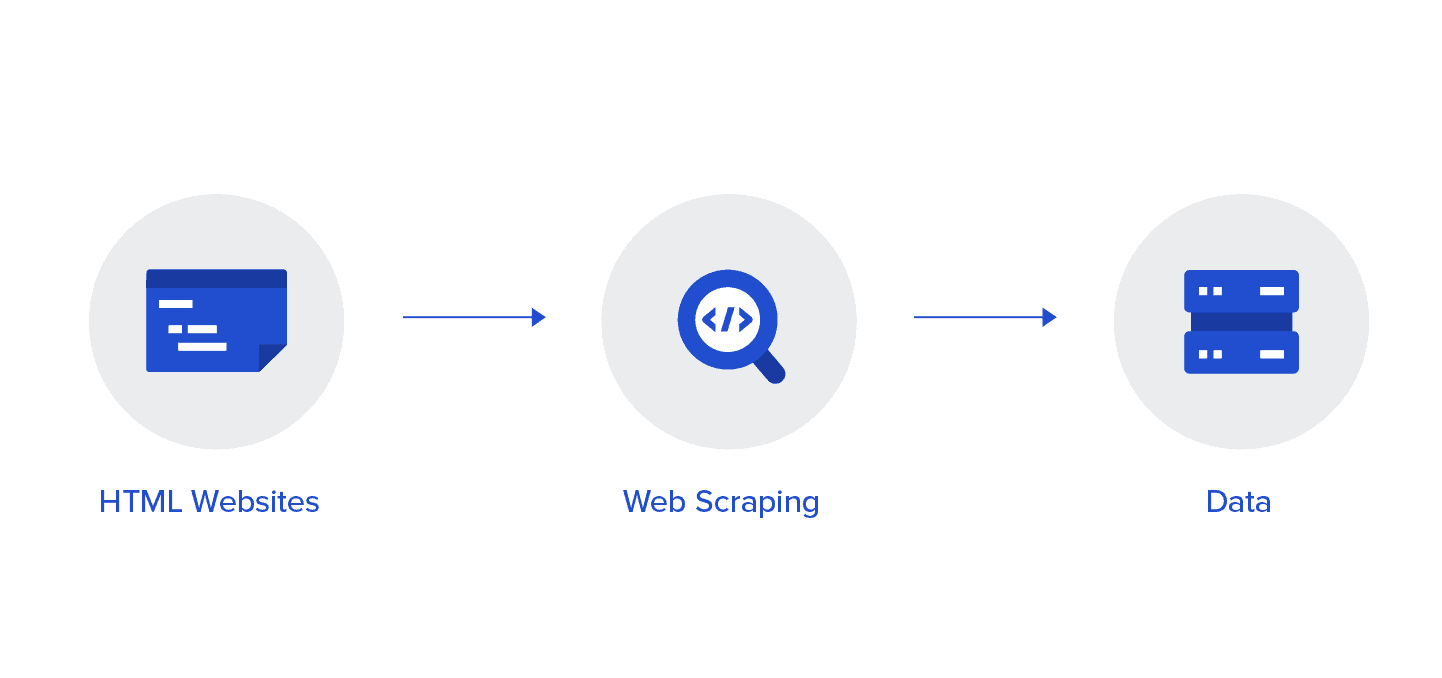Have you ever needed to collect a lot of data from websites quickly and easily? That’s where web scraping comes in! Web scraping is a method used to automatically collect large amounts of information from websites in just a few minutes.
Instead of spending hours copying and pasting data by hand, web scraping tools do all the work for you.
Businesses around the world use web scraping to gather important data for market research, price comparison, customer insights, and even lead generation. It helps save time, increase efficiency, and make smarter decisions.
Let’s Explain what web scraping is, how it works, and how it can benefit your business in simple terms. Let’s explore how web scraping can help your business grow!
What Is Web Scraping?

Web scraping is not a new process. The practice has been around for many years.
However, it’s only been in the last few years that it’s grown in popularity, which has led to the creation of software that automates the web harvesting process and makes it faster and more efficient.
Web scraping is the process of collecting specific public data from many different websites and compiling it into a single format so that it can be evaluated or used in different ways.
Basically, you’ll set parameters on your web harvesting tool regarding the type of information you want to be collected, i.e., product prices.
Then, you run the software, and the program will automatically search the internet, collect the requested public data, and parse it to make it readable.
After parsing, the information will be compiled into your requested format, such as a spreadsheet.
What Is Ethical Web Scraping?

It is essential to scrape data ethically. Unfortunately, there have been those who have abused this tool.
Some individuals try scraping information they shouldn’t, such as personal details or content behind security measures such as logins and more.
There have also been scrapers who send multiple scraping requests to the same website, which slows down the website and can lead to crashes.
To enjoy the benefits that this tool brings, we have to ensure that it is used ethically. Part of this is to ensure that you only scrape public data and never try to collect personal information or content that is protected by logins, passwords, or other measures.
It is also important that you not overwhelm the website you are scraping with numerous requests. Instead, stagger your requests or set the scraping for a time when the website’s traffic is slow.
Finally, make sure that you use any data collected respectfully and never pass off collected data as your own.
How Do Web Scrapers Work?
Web scrapers are tools or software used to automatically collect data from websites. Here’s how they generally work:
- Send Requests: The scraper sends an HTTP request to the website’s server to access its content, similar to how a browser loads a page.
- Download HTML Content: Once the server responds, the scraper downloads the website’s HTML code, which contains all the content, such as text, images, and links.
- Parse HTML: The scraper parses the HTML code using a specific parsing method (like BeautifulSoup or lxml for Python) to extract the relevant data (e.g., product prices, user reviews, etc.).
- Data Extraction: The scraper identifies the desired data points based on HTML tags, CSS classes, or XPaths and extracts this information.
- Store Data: The extracted data is then stored in a structured format such as a CSV file, database, or JSON for easy analysis and use.
- Handle Navigation: Some web scrapers can handle pagination or dynamic content (e.g., JavaScript-loaded content) by simulating clicks or making additional requests to gather data from multiple pages.
Web scraping is widely used for market research, price comparison, data mining, and SEO analysis, allowing businesses and individuals to gather large amounts of information quickly.
Do I Need to Use a Proxy When Web Scraping?
Yes, you should use a residential proxy when collecting data.
While it is possible to use a data center proxy, a residential proxy is much more reliable when it comes to web scraping. This is because residential proxies are linked to real devices with IPs and an ISP.
As such, any requests from this proxy will look like a real web visitor and won’t get banned, so you can collect more data and ensure that the collected data is accurate.
Quick Links
- Best eBay Proxies
- Best Scrapebox Proxies?
- Best Tripadvisor Proxies
- Best Twitter Proxies
- Best Shared Proxies
- Best Canada Proxies
Final Thoughts: What Is Web Scraping 2025?
Web scraping is a powerful tool that helps businesses collect valuable data quickly and efficiently.
Whether you need competitor insights, price tracking, market trends, or customer data, web scraping makes the process easy.
Instead of spending hours gathering information manually, automation does the job in minutes. This means better decisions, smarter strategies, and faster growth for your business.
With the right tools and methods, web scraping can give you a big advantage in today’s data-driven world. Start using web scraping today to gain a competitive edge and unlock new opportunities for your business!




